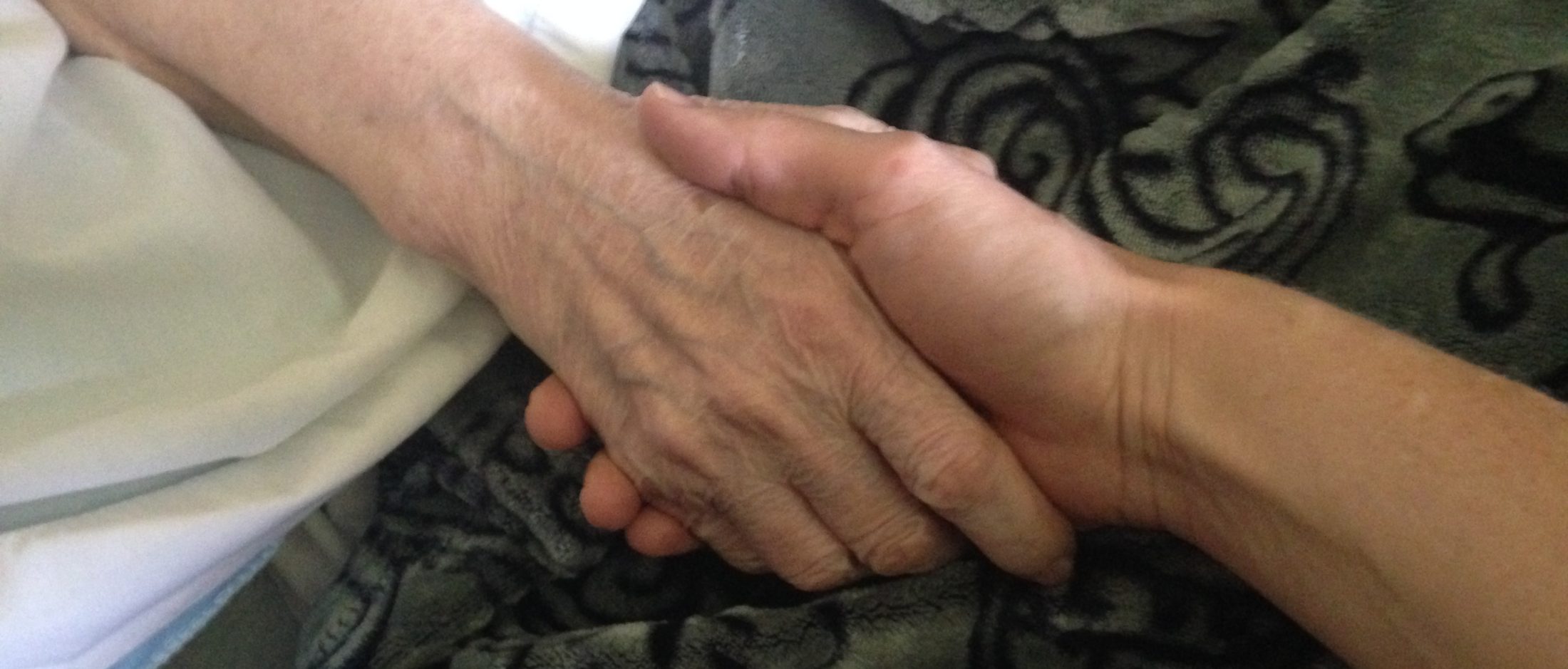Hope Blossoms
My sister, Jo, and I were on a hiking trip last September when our conversation inevitably turned to Alzheimer’s disease. I was venting about my obsession, how I had barely survived Mom’s fall into the abyss and how I knew I couldn’t handle going through it again with any other family member, how desperate I had become to do something — to tell my family’s story, to do research and hopefully sign us up for clinical trials — anything to further Alzheimer’s research and slow, if not stop, the freight train we all seemed to be aboard.
Jo, who was born in 1973 and is No. 8 out of the 10 of us, told me about a new book she was reading and said I had to read it, too. The book was called “The End of Alzheimer’s” by Dr. Dale Bredesen, M.D. She soon after sent it to me as an early 40th birthday present. Excited and even a little nervous about what lay within, I dove in. Could this man really have the answer to the end of Alzheimer’s?
He explained everything in a simple, straightforward way, describing in detail the many causes — 36, he says — of Alzheimer’s and laying out concrete evidence of how Alzheimer’s is not only preventable but also reversible in its early stages — even for those with the gene — when following his ReCODE program.
ReCODE in a nutshell involves his low-carb, high-protein/fat “Ketoflex 12/3” diet, a restful sleep and fitful exercise regime, hormone and vitamin level and other blood testing to ensure the body is functioning at its optimal levels (and taking corrective action if it isn’t) and cleansing any possible toxins, such as mercury, arsenic or mold, from your body. (I will go into detail on each of ReCODE’s steps and my experiences trying to follow them in future posts.)
I hungrily read page after page, and as I did, my purpose came into increasingly sharper focus. Suddenly I knew exactly what I must do: I must somehow rally my stubborn, crazy family to read Bredesen’s book and follow his program. A verve stole over me. I no longer viewed Alzheimer’s as a hopeless, black future. Instead it morphed into a fire-breathing dragon — still formidable, still scary, but very much vanquishable — blocking the path to my family’s health and happiness. I grew from the helpless victim into Amy the Dragon Slayer.
But how exactly does one convince nine individuals, set in their ways, to take time out of their busy schedules to read a book and then take the steps to possibly — but not necessarily — save their own lives from such a fate? The prospect seemed quite daunting, especially when considering the size and scope of Breden’s ReCODE, but my strategy was simple: beg, plead and nag until I got results.
Out went my mass email asking them to read the book and consider the program. I really didn’t know what to expect. Would they agree at first but never get around to it? Would they think it all hogwash? Would they not take me seriously? Whatever their answers, I was ready. Beg. Plead. Nag.
Back came one response and then another and another. Amazingly almost everyone seemed interested and willing to at least read the book and consider trying the program. I believed I had won a major victory in that first small step. I felt as though I was finally doing something that could make a difference, felt as though I had just started what could become a major movement that could shift the tides of Alzheimer’s disease in my family.
Imagine my joy when a few weeks later I attended a family gathering and Bredesen’s book was the main topic of conversation. We spoke excitedly about the various steps of the program, which ones we would try right away or already were doing and which ones were more daunting and perhaps could wait awhile before we tackled them.
A new mission had begun for my family and me, thanks to Dr. Bredesen. When I view my future, it’s now full of hope and excitement instead of worry. To quote the incomparable Captain Jack Sparrow from “Pirates of the Caribbean,” “Bring me that horizon!” I am up for the challenge.
